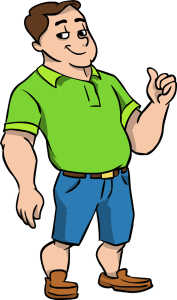Table of Contents
Week 1 | English Grammar
Day 4 |I am doing (present continuous)
Day 5 |Are you doing? (present continuous questions)
Day 6 |I do/work/like (present simple)(present continuous questions)
Week 2 | English Grammar
Day 1 |I don't... (present simple negative)
Day 2 |Do you...? (present simple questions)
Day 3 |I am doing (present continuous) I do (present simple)
Day 4 |I have... and I've got...
Day 6 |Worked/got/went etc (past simple)
Week 3 | English Grammar
Day 1 |I didn't... did you...? (past simple negative and questions)
Day 2 |I was doing (past continuous)
Day 3 |I was doing (past continuous) and I did (past simple)
Day 4 |I have done (present perfect 1)
Day 5 |I've just... I've already... I haven't...yet (present perfect 2)
Day 6 |Have you ever...? (present perfect 3)
Week 4| English Grammar
Day 1 |How long have you...? (present perfect 4)
Day 3 |I have done (present perfect) and I did (past)
Day 4 |Is done, was done (passive 1)
Day 5 |Is being done, has been done (passive 2)
Day 6 |Be/have/do in present and past tenses
Week 5| English Grammar
Day 1 |Regular and irregular verbs
Day 2 |What are you doing tomorrow?
Week 6| English Grammar
Day 2 |Must, mustn't, don't, need to
Day 6 |Do this! Don't do that! Let's do that
Week 7| English Grammar
Day 2 |There is... There are...
Day 3 |There was/were... There has/have been... There will be...
Day 6 |Have you? Are you? Don't you? etc
Week 8| English Grammar
Day 1 |Too/either/so am I/neither do I etc
Day 2 |Isn't/haven't/don't etc (negatives)
Day 3 |Do they? Is it? Have you?
Day 4 |Forming questions (who/what/why/where/when/which)
Day 5 |What...? Which...? How...?
Day 6 |How long does it take...?
Week 9| English Grammar
Day 1 |Do you know where...? I don't know what... etc
Day 2 |He/she said that... He/she told me that...
Day 3 |Work/working Go/going Do/doing
Day 4 |I want you to... I told you to...
Day 5 |I went to the shop to...
Day 6 |Go to... Go on... Go for... Go -ing... Get…
Week 10| English Grammar
Day 4 |I/me He/him They/them etc
Day 6 |Whose is this? It's mine/yours/hers etc
Week 11| English Grammar
Day 1 |Myself/yourself/themselves etc
Week 12| English Grammar
Day 2 |All/most/some/any/no/none etc
Week 13| English Grammar
Day 2 |If we go... if you see... etc
Day 3 |If I had... If we went... etc
Day 4 |A person who... A thing that/which (relative clauses 1)
KS3 Chemistry Questions – Atoms, Elements, Compounds & Mixtures


1. Everything in the world is made up of ______.
a. Mixtures
b. Atoms
c. Compounds
d. Water
e. Chlorine
2. All atoms are the same.
a. True
b. False
3. Compounds are made up of two or more_____________.
a. Mixtures
b. Metals
c. Elements
d. Helium atoms
e. Acids
4. All elements have a chemical symbol of one or two letters
a. True
b. False
5. Carbon dioxide has one carbon atom and two oxygen atoms. The chemical symbol for carbon is C and for oxygen, it is O. Is the chemical for chemical formula for carbon dioxide C2O?
a. Yes
b. No
[bg_collapse view=”link” color=”#fafafa” expand_text=”Reveal Answer” collapse_text=”Hide Answer” inline_css=”background: #2ea3f2; padding: 9px; font-size: 14px; font-weight: 600;” ]
1.Atoms
2.False
3.Elements
4.True
5.No
[/bg_collapse]

1. How is a compound different to a mixture?
2. What is a mixture?
3. Ammonia is made up of nitrogen and hydrogen. There are three nitrogen atoms for every hydrogen atom. Use your periodic table to look up the chemical symbols for nitrogen and hydrogen and write the chemical formula here.
4. What are two ways of separating a mixture?
5.How is a compound made up?
[bg_collapse view=”link” color=”#fafafa” expand_text=”Reveal Answer” collapse_text=”Hide Answer” inline_css=”background: #2ea3f2; padding: 9px; font-size: 14px; font-weight: 600;” ]
Compounds have chemical bonds
Mixtures are easier to separate
2.
A mixture contain two or more substances (elements or compounds) that are not chemically bonded together.
3.
NH3
4.
Filtration, Evaporation, Distillation, Boiling
5.
Two or more elements are chemically bonded together
[/bg_collapse]

